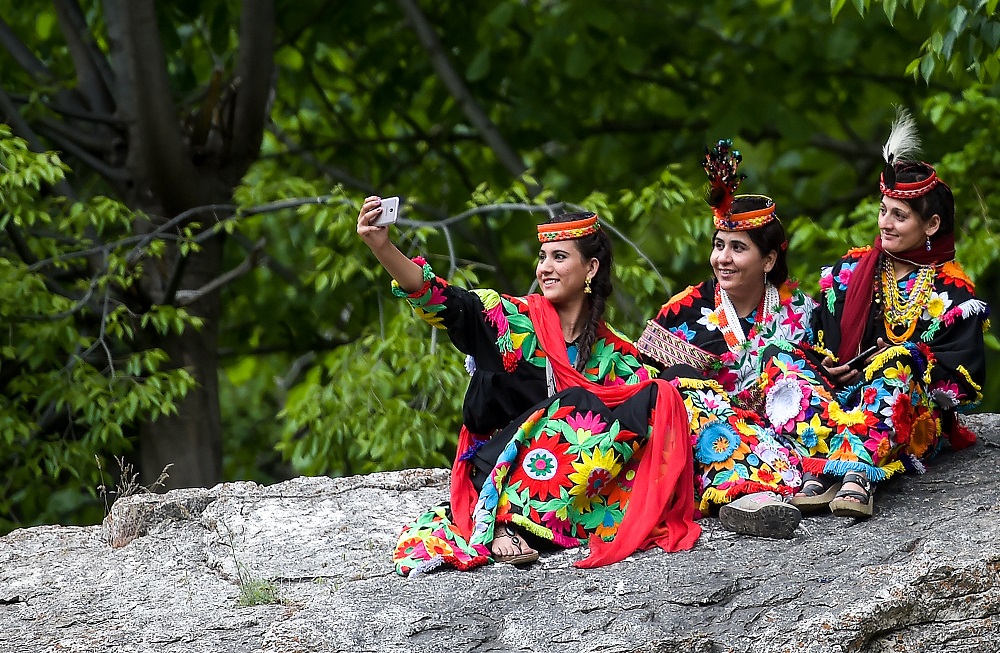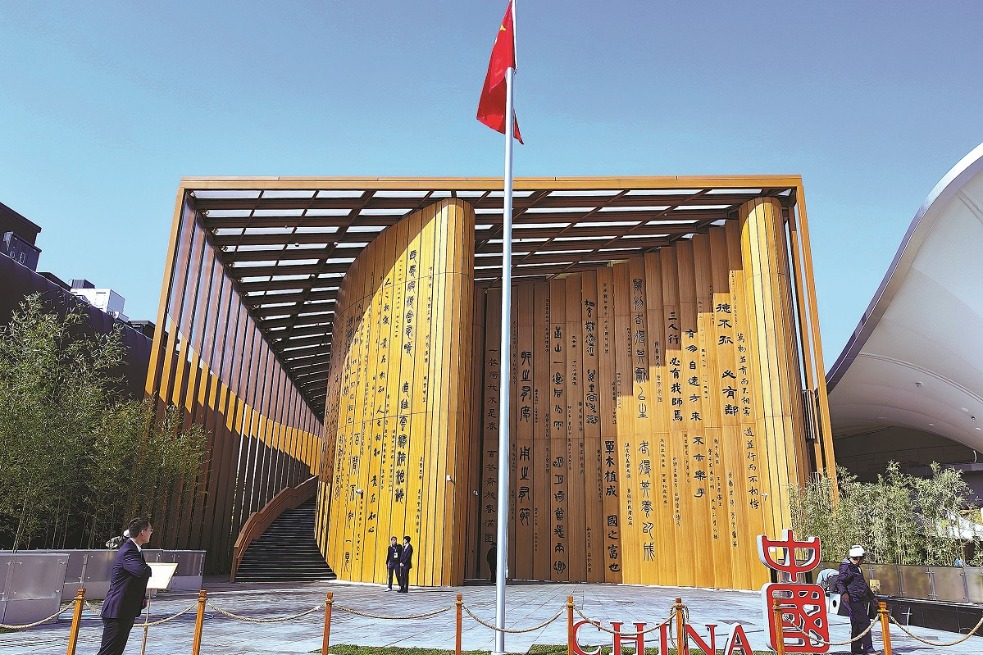Tourists a threat to Kalash traditions
China Daily | Updated: 2019-06-11 09:45

BUMBURATE, Pakistan-In a remote valley in Pakistan, dozens of Kalash minority women dance to celebrate spring's arrival. But as a gaggle of men scramble to catch them on camera, the community fears an influx of domestic tourists is threatening their unique traditions.
Every year the Kalash-a group of fewer than 4,000 people confined to a handful of villages in the north-greet the new season with animal sacrifices, baptisms, and weddings at a festival known as Joshi.
As celebrations kick off, tourists with phones jostle to get close to Kalash women, whose vibrant clothing and headdresses contrast starkly with the more modest attire worn by many in the Muslim-majority republic.
"Some people are using their cameras as if they were in a zoo," said local tourist guide Iqbal Shah.
Known for their pale skin and light-colored eyes, the Kalash have long claimed ancestral links to Alexander the Great's army, which conquered the region in the fourth century BC.
They worship many gods, drink alcohol is a tradition and they choose their own spouses-unlike in the rest of Pakistan where unions are often arranged.
However, the community is far from a liberal beacon. Members of the community often wed in their teens. Women are poorly educated and expected to perform traditional roles in the home.
Stories about the Kalash are nonetheless frequently fabricated, and this has been amplified in recent years by the proliferation of smartphones and social media.
Some call them "beautiful infidels" and say "anyone can go and marry any girl there".
"How could that be true?" asks Luke Rehmat, a Kalash journalist.
"People are systematically trying to defame the community. They are fabricating stories… when a tourist comes with such a mindset, he will try to experience (it)."
In the main Kalash village of Bumburate, a hotel manager estimates that about 70 percent of Pakistani tourists visiting his establishment are young men, who often inquire about where to "find girls".
According to tourists who spoke to AFP, most of whom were men traveling in groups, their primary interest in exploring the Kalash Valley was to learn about a new culture.
"We want to be part of this festival but it doesn't mean that we want to mix up with girls," said tourist Sikander Nawaz Khan Niazi from Lahore.
Increasing friction
But friction has been increasing in recent years.
In Bumburate, posters now call on visitors to seek permission from villagers before photographing and signs warn tourists not to harass women.
"If they don't respect us, we don't need tourists," said Yasir Kalash, the vice president of the local hotel association.
"If they respect... our culture and traditions, we must welcome them."
Regulating tourism is a cumbersome but vital task for the Kalash, with money from the industry increasingly providing an important source of revenue for the community.
The Kalash, who once inhabited a vast territory stretching from the Himalayas in Kashmir to northern Afghanistan, are now one of the smallest religious minorities in Pakistan, according to Akram Hussain, the director of a local museum.
A recent survey put their number at just 3,872, living in three remote valleys.
"We are going to die if we are not supported," said Hussain.
Kalash traditions, Hussain argues, can be expensive. Weddings and funerals require families to kill dozens of animals for the festivities, driving them into debt, forcing them to sell off land and leave their ancestral homes.
Cases of forced conversions to Islam of Kalash women have also been reported, while the increase in tourism has pushed some in the community to shun traditions like Joshi, according to several residents.
Others have begun wearing veils to hide their faces from the prying eyes of outsiders.
"We don't wear veils as it is not our custom, but some wear them because people take pictures of them from all sides and it makes them feel ashamed," said Musarrat Ali, a high school student.
The ongoing erosion of the culture at the hands of outside forces is tragic, said Sayed Gul, an archaeologist from Bumburate.
"They don't want to participate just because of these cameras and this insensitivity," said Gul.
"If these things are continuously happening,… maybe in a few years, there are only tourists, there are no more Kalashis to participate and dance in the festivals."
Xinhua
























